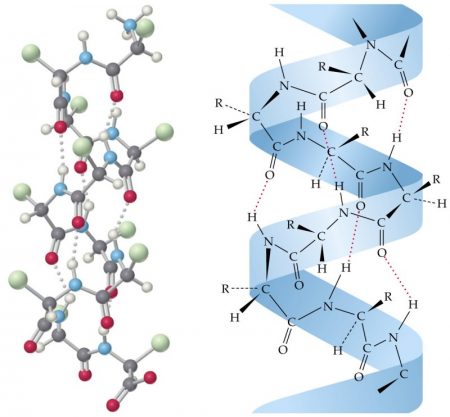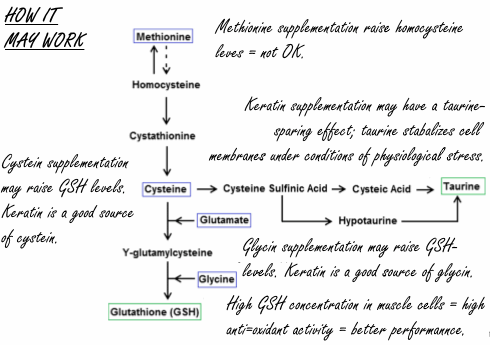Keratin hydrolysate as sports supplement – IronMag Bodybuilding & Fitness Blog

Endurance athletes – and perhaps strength athletes too – may perform better if they use supplements containing hydrolysed keratin. Sports scientists at Massey University, New Zealand, write about this in the Journal of the International Society of Sports Nutrition (JSSN). The researchers think that keratin supplementation boosts the concentration of glutathione in muscle cells, which increases endurance capacity.
Keratin is the protein from which hair and nails are made. The body cannot absorb the pure form but it can absorb hydrolysed keratin. The New Zealand company Keraplast Technologies [keraplast.com], known mainly as a manufacturer of advanced wound dressings, recently started marketing Keratec, an edible form of hydrolysed keratin.
The New Zealanders’ publication in JSSN is not sponsored, but three of the four authors – Stuart Houltham, Carlene Starck and Stephen Stannard – have recently performed successful studies for Keraplast on bars and shakes containing Keratec: on consumers’ taste perception and the products’ digestibility. [J Hum Nutr Food Sci 2(4): 1047.]
We borrowed the figure below from this publication. Keratin hydrolysate contains large amounts of cysteine, an amino acid that contains sulphur, from which the body makes glutathione. Detoxifying enzymes in cells need glutathione to function – and the better these enzymes function in muscle cells, the more intensively and heavily athletes can tax these cells.

How keratin hydrolysate (may) work
“Endurance athletes are susceptible to cellular damage initiated by excessive levels of aerobic exercise-produced reactive oxygen species,” the New Zealanders write. “Whilst reactive oxygen species can contribute to the onset of fatigue, there is increasing evidence that they play a crucial role in exercise adaptations.”
“The use of general antioxidant supplements such as vitamin C and E in athletes is common; however, their ability to enhance performance and facilitate recovery is controversial, with many studies suggesting a blunting of training adaptations with chronic supplementation.”
“However, as the up-regulation of endogenous antioxidant systems are brought about by exercise training, athletes may benefit from increasing these systems through dietary thiol donors. While the thiol donors methionine and NAC may increase endogenous antioxidants and antioxidant enzymes, there can be adverse effects associated with their use.”

“Thus, the discovery for the use of hydrolysed keratin to potentially enhance endogenous GSH and taurine may have important implications for athletes hoping to enhance performance and recovery without blunting training adaptation.”
Dietary thiols in exercise: oxidative stress defence, exercise performance, and adaptation
Abstract
Endurance athletes are susceptible to cellular damage initiated by excessive levels of aerobic exercise-produced reactive oxygen species (ROS). Whilst ROS can contribute to the onset of fatigue, there is increasing evidence that they play a crucial role in exercise adaptations. The use of antioxidant supplements such as vitamin C and E in athletes is common; however, their ability to enhance performance and facilitate recovery is controversial, with many studies suggesting a blunting of training adaptations with supplementation. The up-regulation of endogenous antioxidant systems brought about by exercise training allows for greater tolerance to subsequent ROS, thus, athletes may benefit from increasing these systems through dietary thiol donors. Recent work has shown supplementation with a cysteine donor (N-acetylcysteine; NAC) improves antioxidant capacity by augmenting glutathione levels and reducing markers of oxidative stress, as well as ergogenic potential through association with delayed fatigue in numerous experimental models. However, the use of this, and other thiol donors may have adverse physiological effects. A recent discovery for the use of a thiol donor food source, keratin, to potentially enhance endogenous antioxidants may have important implications for endurance athletes hoping to enhance performance and recovery without blunting training adaptations.
Source: https://jissn.biomedcentral.com/articles/10.1186/s12970-017-0168-9

